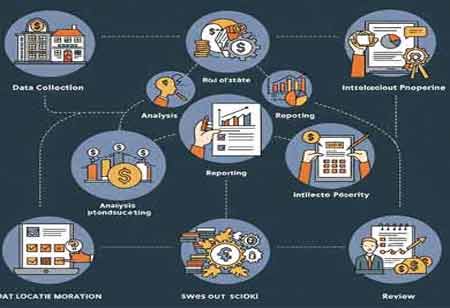CLOSE
Specials
- RegTech Europe
- Financial Risk Management APAC
- Investment Banking APAC
- Corporate Advisory APAC
- Regtech APAC
- Escrow Services
- Digital Banking Latam
- Trading Solutions APAC
- Treasury Management Europe
- CPA Firms Canada
- Financial Risk Management Europe
- Mortgage Broker
- Financial Licensing Europe
- RIA Advisory Europe
- FinTech Canada
- Financial Asset Management APAC
- Investment Banking Canada
- Payment Solution
- Lending Mangment Latam
- Payment Solution Europe
- Broker Dealer Firms Canada
- Alternative Investments Canada
- Financial Fraud
- Investment Management Latam
- Financial Health Europe
- Lending mangment
- Financial Marketing
- Proprietary Trading Europe
- Wealth Management
- FinTech
- Financial Brokerage Firm APAC
- Investment Advisory Europe
- Investment Advisory APAC
- Wealth Management MENA
- Claim Adjusting
- Claim Adjusting APAC
- Mergers and Acquisitions Consulting APAC
- Equipment Financing
- CPA Firms
- Mergers and Acquisitions Consulting Canada
- Investment Services
- Valuation Services Canada
- Wealth Management APAC
- Broker Dealer Firms
- Debt Collection Agencies
- Mergers and Acquisitions Consulting
- FinTech Europe
- Fintech Latam
- Financial Planning / Retirement
- Investment Management
- Financial Compliance
- Digital Banking Europe
- CFO Services
- Debt Collection Agencies Europe
- Wealth Management Europe
- Mergers and Acquisitions Consulting Europe
- Financial Restructuring Europe
- Financial Portfolio Management Canada
- Business Loan
- Payment and Card Latam
- Wealth Management Latam
- Mergers and Acquisitions Consulting Latam
- Tax Advisory Canada
- Trading Solutions Europe
- Alternative Investments
- Digital Insurance Europe
- Investment Services Latam
Weekly Brief
×Be first to read the latest tech news, Industry Leader's Insights, and CIO interviews of medium and large enterprises exclusively from Financial Services Review
Thank you for Subscribing to Financial Services Review Weekly Brief
Importance of Financial Due Diligence
Due diligence is an investigation, audit, or examination conducted to substantiate the facts or particulars of an issue under consideration.

By
Financial Services Review | Tuesday, June 27, 2023
Stay ahead of the industry with exclusive feature stories on the top companies, expert insights and the latest news delivered straight to your inbox. Subscribe today.
Due diligence aims to examine a company's numbers, compare them over time, and benchmark them against its competitors.
FREMONT, CA: Due diligence is an investigation, audit, or examination conducted to substantiate the facts or particulars of an issue under consideration. Conducting due diligence in the financial world is necessary before engaging in a proposed transaction with another party.
With the progression of the Securities Act of 1933, due diligence became a widespread practice in the United States. This law required securities dealers and brokers to disclose all material information regarding the instruments they sold. The failure to disclose this information to prospective investors made dealers and intermediaries criminally liable.
In requiring full disclosure, the law's authors acknowledged that dealers and brokers might be unfairly prosecuted for failing to disclose material facts. Thus, the act included a legal defense: so long as the dealers and brokers conducted "due diligence" when investigating the companies whose shares they were selling and disclosed the results in full, no information could be held against them if it was not discovered during the investigation.
Equity research analysts, fund managers, broker-dealers, individual investors, and companies contemplating the acquisition of other companies conduct due diligence. Investors are not required to conduct due diligence. Before selling security, however, broker-dealers are legally obligated to conduct due diligence.
Due diligence is an essential process that should be part of any business plan. It is the analysis of a potential investment or business opportunity to ensure that all the relevant facts are considered when deciding. Due diligence helps identify potential risks and opportunities associated with a business venture and assess the management team's capabilities.
With competition so fierce, it is crucial to fully grasp the market, the competition, and the opportunities. Due diligence is the process that ensures all relevant information is collected and analyzed to make an informed decision. Doing so can reduce the chance of future problems and give businesses a great idea of how worthwhile the investment would be.
Due diligence can include research into the target company's financials, customer base, products and services, management team, competitors, industry trends, and more. This research allows businesses to gain valuable insight into the potential investment and make better decisions.
Due diligence also helps to mitigate potential risks. By taking the time to thoroughly investigate business opportunities, firms can better understand the risks and opportunities associated with them. This can help businesses develop risk mitigation strategies and ensure they take on only a little risk.
Due diligence cannot be regarded as a one-time event. Regularly reviewing and updating it is a continuous process. Staying on top of the latest expansions and trends is important as the market changes and new opportunities arise. This will help ensure that entrepreneurs make the best possible
business decisions.
By doing proper due diligence, entrepreneurs can make more informed decisions and reduce the chance of surprises. This can ultimately help them to have successful and profitable businesses.
Types of Due Diligence
Depending on the objective, various forms of due diligence exist.
Context-Specific Due Diligence
Commercial due diligence considers a company's market share, competitive positioning, and growth prospects and prospects. This will include the company's supply chain, from suppliers to customers, as well as market analysis, sales pipeline, and R&D pipeline. This can also have a company's management, human resources, and information technology.
Legal due diligence ensures that a company's legal, regulatory, and compliance ducks are in a row. This encompasses pending litigation and intellectual property rights to the company's incorporation status.
A company's financial statements and records are examined for discrepancies and financial stability during financial due diligence.
Tax due diligence examines the company's tax exposure, whether it owes back taxes, and where it can reduce its future tax burden.
Hard vs. Soft Due Diligence
Due diligence can be classified as "hard" or "soft" based on the method employed.
Hard due diligence focuses on the numbers and information in financial statements, such as the balance sheet and income statement. This may involve fundamental analysis and the application of financial ratios to assess a company's financial standing and make projections for the future. This form of due diligence can also reveal red flags or accounting inconsistencies. Hard due diligence, motivated by mathematics and the law, is susceptible to optimistic interpretations by eager salespeople. Soft due diligence serves as a counterbalance when the statistics are being manipulated or overemphasized.
As part of the soft due diligence process, factors such as the moral character and capabilities of the company's management are examined, as well as the loyalty of the company's customers. Indeed, numerous drivers of business success can only be partially quantified, including employee relationships, corporate culture, and leadership. When merger-and-acquisition transactions fail, as an estimated 70 percent to 90 percent of them do, it is frequently because the human element is overlooked.

Copyright © 2025 Financial Services Review. All rights reserved





